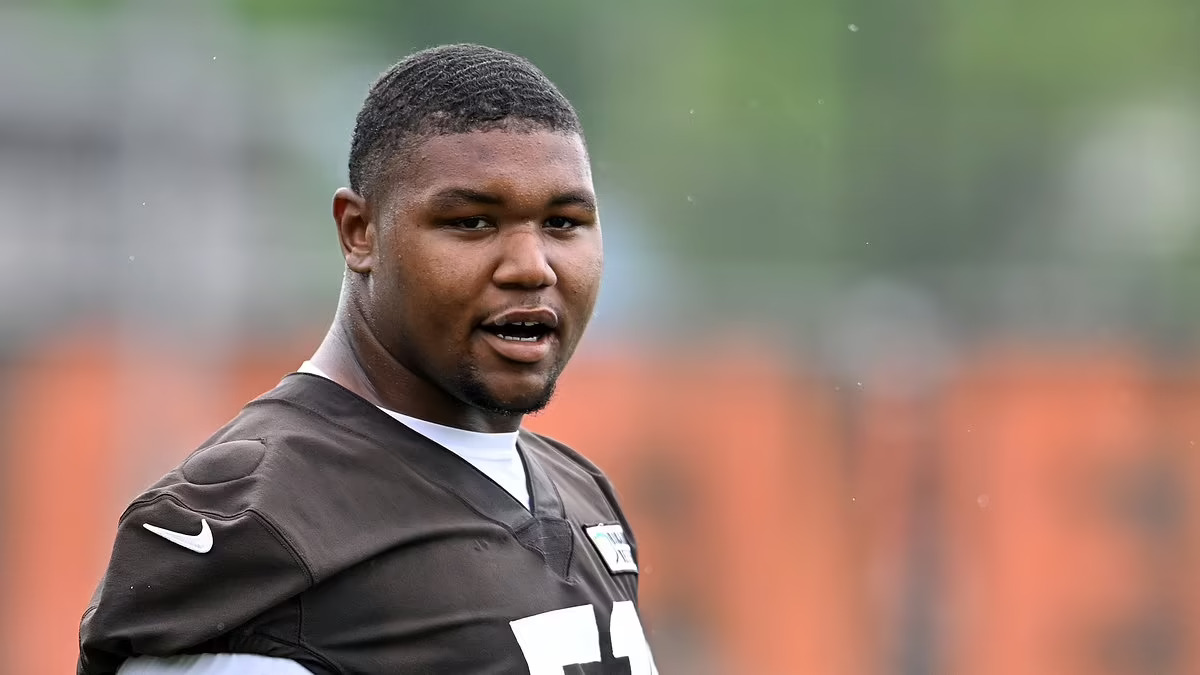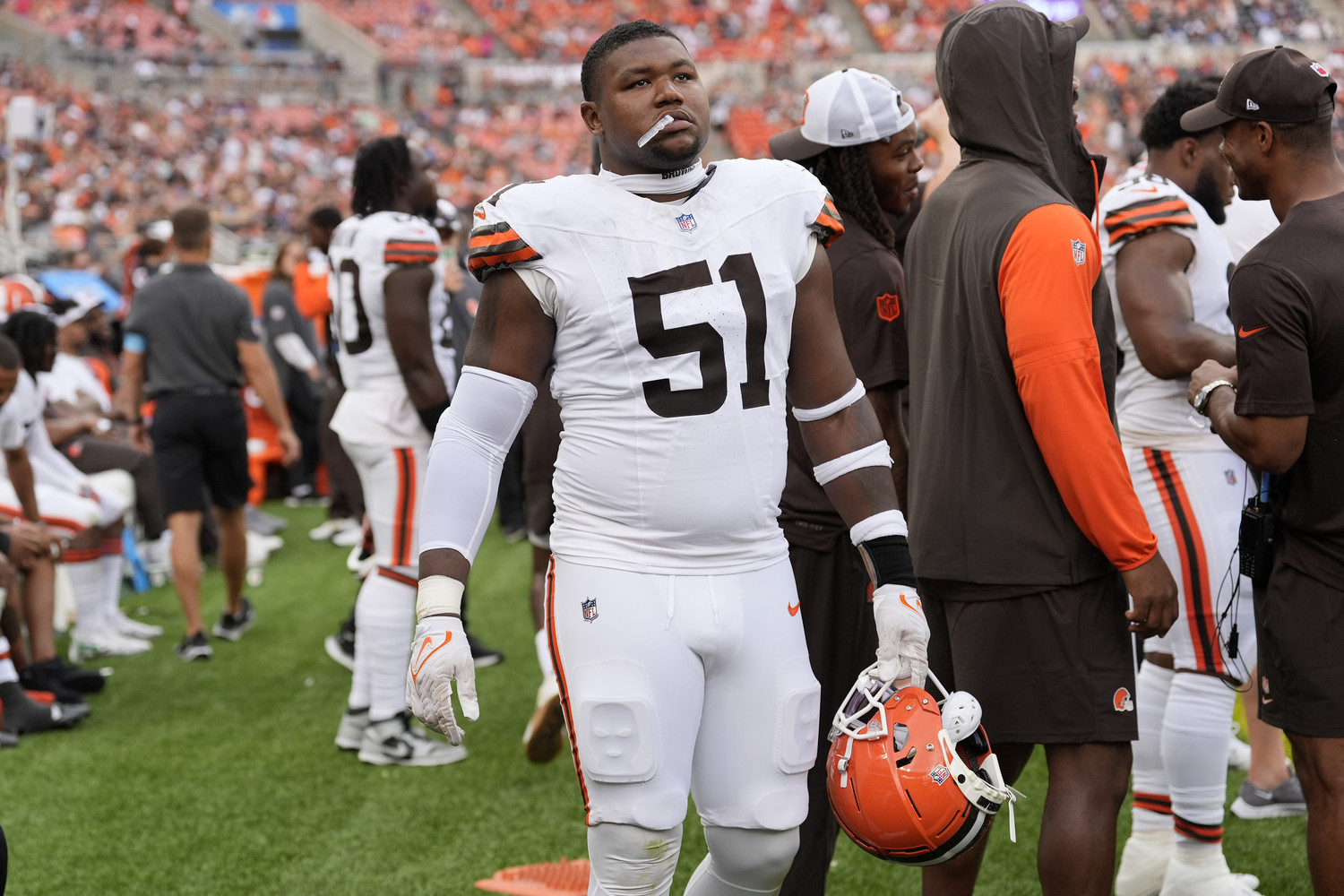On August 13, Cleveland Browns rookie Michael Hall Jr. was arrested shortly after his first NFL appearance for allegedly holding a gun to his fiancée’s head and threatening to kill her. The NFL quickly launched an investigation, and Hall was placed on the commissioner’s exempt list, barring him from participating in any team activities until the investigation was completed. Despite his fiancée later recanting her statement, Hall pleaded no contest to a reduced charge of disorderly conduct, resulting in a five-game suspension from the league.
This swift response from the NFL reflects the procedures put in place after public backlash over the Ray Rice incident in 2014. Following the release of a video showing Rice assaulting his fiancée, the NFL faced criticism for its delayed and inconsistent handling of domestic violence allegations. In response, the league introduced tougher policies, including mandatory education on domestic violence for players and specific penalties for violations. First-time offenders now face a minimum six-game suspension.
Over the years, the NFL claims that arrests for all offenses, including domestic violence, have decreased by about half since these policy changes were implemented. However, the number of domestic violence cases reported annually has varied, with some years seeing a rise in incidents. In 2023, the NFL reported 11 domestic violence cases, a significant increase compared to previous years like 2015, which saw only eight reported cases. By mid-2024, five cases had already been reported.

The NFL’s response to domestic violence cases stems from efforts led by Lisa Friel, a former Manhattan prosecutor, who was hired to oversee investigations after the Ray Rice incident. Friel emphasized the complexity of such cases, where victims sometimes do not cooperate or recant their statements. She noted that many victims may face financial dependency or other pressures, which can complicate investigations.
The league’s personal conduct policy, introduced in the aftermath of the Rice incident, includes various sanctions for players found guilty of domestic violence. These range from suspensions for first-time offenders to a lifetime ban for second offenses. Friel explained that her role in overseeing investigations is to ensure that there is “credible evidence” before recommending any disciplinary action. While she cannot impose punishments herself, she works closely with Commissioner Roger Goodell, who makes the final decisions.
Despite the new policies, there have been inconsistencies in the punishments handed out to players. For instance, players like Ezekiel Elliott and Kareem Hunt were suspended after allegations of domestic violence, while others, like Tyreek Hill, were not suspended despite accusations and investigations. Hill was accused of child abuse, but the NFL ultimately found insufficient evidence to charge him under its conduct policy.
Public scrutiny has remained high regarding the NFL’s handling of these sensitive cases. Some players have been cut from teams entirely, while others have resumed their careers after serving suspensions. In cases where players are not suspended, critics argue that the league should be more transparent and consistent in its enforcement of its conduct policy.
In 2023, Buffalo Bills defensive end Von Miller was suspended for four games without pay for violating the NFL’s personal conduct policy. Miller had been arrested on a charge of assaulting a pregnant woman, though he denied the allegations, and the case against him had been closed by the district attorney’s office. This case highlights the ongoing challenges the league faces in dealing with allegations where criminal charges may not be pursued, but the NFL still considers the behavior unacceptable.
The NFL’s response to domestic violence cases has evolved, with additional programs like the Critical Response Team being introduced. This team is composed of NFL employees, including a domestic violence adviser, who respond to crises involving players or their families. The league has also partnered with organizations like the National Domestic Violence Hotline, donating millions to help support their work. However, critics believe that the NFL could do more to assist victims, with some calling for dedicated advocates to guide individuals through the reporting and recovery process.
Former victims of domestic violence, like Alleah Taylor, who was assaulted by former NFL player Chad Wheeler, have voiced concerns about the league’s involvement in such cases. Taylor, who was attacked by Wheeler in 2021, said that while the league reached out once to check on her condition, they did not offer any further support. Taylor emphasized the need for more proactive assistance from the NFL, particularly in offering counseling and other resources to victims of domestic abuse.
Despite these criticisms, Friel and the NFL continue to argue that the league has made significant progress in addressing domestic violence issues. Friel pointed out that while the number of cases may never reach zero, the drop in arrests and increased awareness are signs that the policies are having a positive effect. The NFL remains committed to improving its response and ensuring that players are held accountable while providing support to victims.
